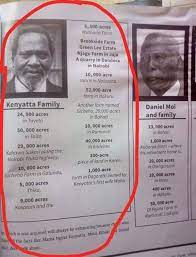After life had proven difficult for Babukusu at Esirende due to enemy encroachment and successive droughts, the elders deliberated on a move towards the south. The community came into a region called Nabiswa or ‘the land of the ant-hills’. It was a plain countryside having many anthills that fed Babayi with chiswa (termites). It is estimated to be within the present-day Lokitau’ng. Amidst the pleasure of eating termites, the people saw it fit to settle and built homesteads.
However, just like in former migratory regions, Enabiswa was also encroached with enemy tribes. The Nabibia (the Ethiopians) would regularly forge attacks on Bukusu homestead and make away with herds of livestock. The Babukusu were increasingly disturbed. However, what made it worse is that Nabibia acted as middle men to a race of brown people. They probably were Arabs who had earlier forged trade and commerce with the indigenous communities. Through the eyes of Babayi, the Arabs and Ethiopians were more of a security risk than trading partners. The trade relations were treated with utmost caution and it seems that a conflict was always looming. The community was keen to speak less to these communities in fear of displaying their soft under-bellies for attacks. As such, the Bukusu-Arab commerce ties did not stand the test of time. A narration of Arab’s dealing with a Bukusu old woman would cement the relationship between two communities and open a full-fledged war.
One day, in the villages that Babukusu resided, there appeared a group of brown looking Arabs. Naturally, the Bukusu would treat them with suspicion. They waited till near dusk and approached the village cautiously. Reaching a riverside, they saw an old Bukusu lady fetching water. They beckoned her to move closer to them. Her first instinct was to panic but the brown strangers went ahead to seduce her mind with gleaming gifts of ornaments. She took the bait.
They beseeched her to make friendship with them in exchange for the ornamental gifts. They persuaded her to be their emissary to the villagers. They persuaded her promising to avail many gifts that she would sell in the villages and meet at the same spot for exchanges. In that formation, she could get profitable as she could retain some ornaments with her. The tempting offer completely melted her heart.
The Bukusu oral tradition accounts narrate that the old woman was a widow whose husband had passed away. She barely had enough to eat. Most times, she could take cleaning jobs at the tribal elder’s homestead so that she could get a bite. Often she could go without fresh blood and milk. In those circumstances, the poor widow lived under the knowledge that her own people had neglected her. Therefore, when the brown strangers extended to her kindness, she was thrilled. Then, she accepted to take a variety of articles such as bangles, trinkets, necklaces and even salt.

The old widow would later return to the villagers and start engaging in trade while keeping her little secret to herself. Her fame picked up and people sought after her for the precious commodities. She became a self-made trader and grew quite famous. She now had enough to eat and could not go around borrowing. The Bukusu tribal elders, too neither did raise any suspicion nor trail her to ascertain the source of her mysterious trade.
After a short while, the brown strangers returned, as earlier on agreed. They managed to secretly meet the old lady. They inquired about the sale and she joyfully told them how their articles sold off quickly. In fact, people had begun asking for more making her worried on where she will get her next consignment. She thanked them for retuning. But this time, the brown strangers wanted something more:
“What can we do so that we trade freely in the village. For now, we can’t since your tribal leaders may spear us dead right in your homesteads? “
She replied:
“The sentries (warriors) who guard the tribal leader are fierce and fearless. Do not dare approach them. They also outnumber you and have very heavy weapons. It will only take a short time and you will all be massacred. “
The Brown strangers pressed her to tell them how to bypass the sentries.
“Take your time. Go and return later tonight. I will be right here. I will give you a tour of the homestead. I know when the sentries are asleep.”
Disregarding her own tribal interests, the old lady gave vital pieces of information and laid a treacherous plan that would savage her people. Under the cover of darkness, the brown strangers reappeared. As faithfully promised, the old widow was at the very spot they had agreed about. After confirming warriors were fast asleep, she took them round, showing where tribal leaders slept and where weapons (clubs, spears, arrows, swords, and shields) were kept, all unnoticed. After the reconnaissance, the Arabs went back and devised a master plan on how to finish off the Bukusu community at one go.

It only took several days when a large army arrived at the villages. It was during the night when the Arab army surrounded the homesteads. They went straight to touching the huts with fire. People rendered cries seeking for help. The Arab army attacked their armories and set huts a blaze. As people made way from the burning huts, they would fall on the Arab swords awaiting them by the door way. Many sons and daughters of the land fell to the brutality of the Arab traders-turned-attackers.
Things had turned red-hot and it was time for an exodus. Having been caught in surprise, they mounted a weak defense and many did not have weapons.
The Arabs overran the villages, ransacked the kraals driving away herds of cattle. They also took many people into captivity. They also demolished the blacksmiths' huts, sabotaging the mongering economy. The old woman traitor also perished at the sword of the brown people.
At the first light, the horrible news of war had spread in all the villages. Desperate for safety, the survivors bundled themselves up and swiftly organized mass flights away from Nabiswa.
The surviving community members flocked out trailing the plains and valleys, in the south-westerly ward direction. They came towards Lake Nabibia, the land of Iron People (Lake Turkana). They came to live under the people of Bamerere....
Next: Life at Embayi among Bakisila, Basebeyi, Bakinisu, Bamulyungu and Bamarere













